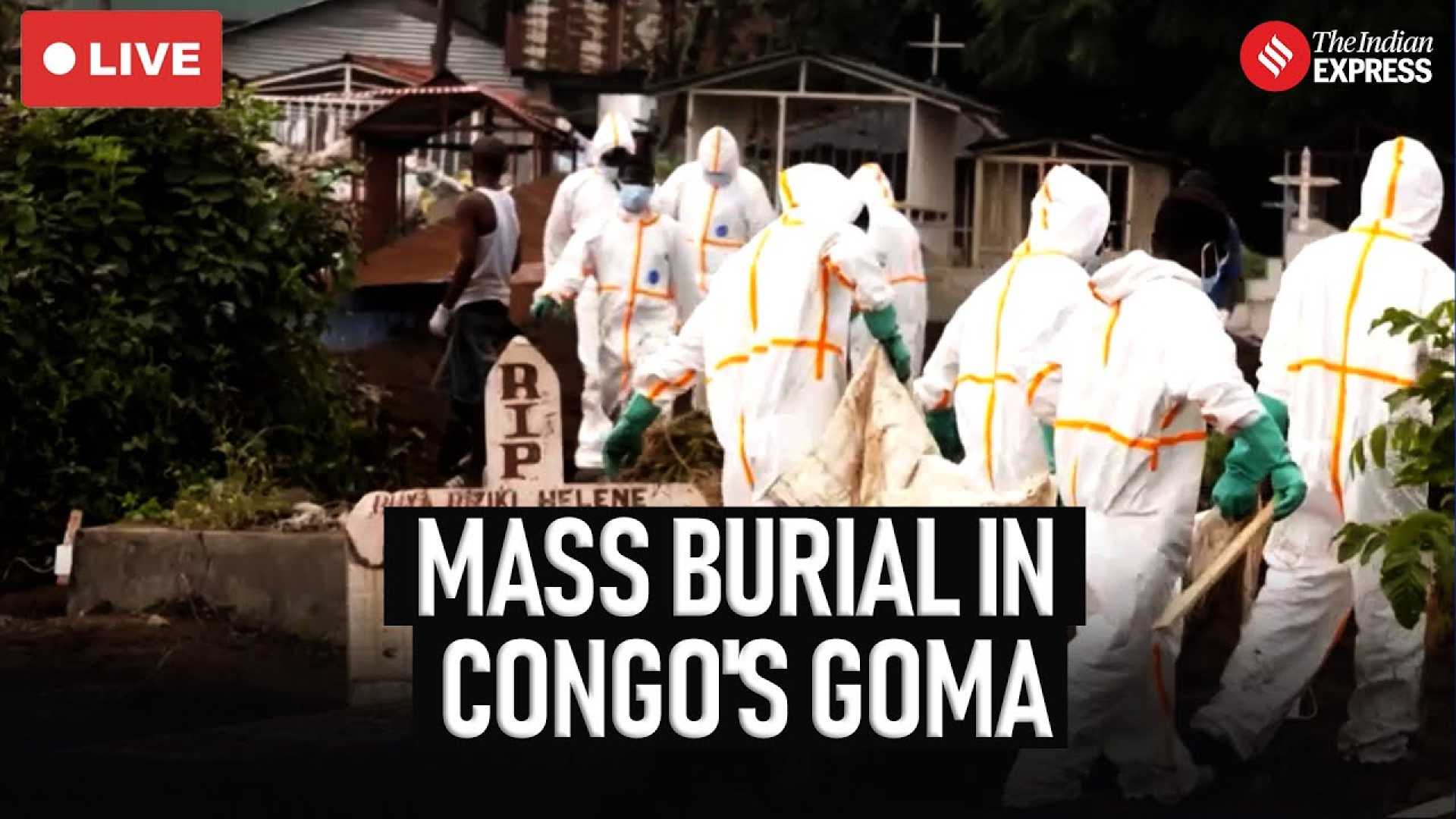World
Ceasefire in Goma as Residents Bury 2,000 Amid Disease Fears

GOMA, Democratic Republic of Congo (Reuters) – Rebels in eastern Congo’s largest city, Goma, declared a ceasefire on Tuesday, allowing residents to bury over 2,000 victims of last week’s intense battles. The pause in fighting comes amid fears of disease spreading from unburied bodies and overwhelmed morgues.
The M23 rebels, backed by Rwanda, captured Goma on Monday and largely maintained control, though sporadic shooting and looting were reported. Residents faced the grim task of clearing bombed-out buildings and overflowing morgues. Democratic Republic of Congo’s communications minister confirmed the need to bury over 2,000 bodies, while the United Nations reported at least 900 deaths and nearly 3,000 injuries during the conflict.
Julienne Zaina Barabara, a resident of the Katoyi neighborhood, recounted the tragedy of losing one child and seeing two others wounded by shrapnel. “We took them all to the hospital, where one died after three hours. The other two are still receiving treatment,” she said. Aid groups are assisting with burials and managing overwhelmed hospitals, as days without power last week compromised refrigeration in morgues.
Myriam Favier, head of the International Committee of the Red Cross sub-delegation in Goma, described the challenges of limited burial space. “The land where bodies can be buried in Goma is extremely limited,” she said. The conflict has displaced around 700,000 people in and around Goma, according to the World Food Programme.
Bruno Lemarquis, the top U.N. aid official in Congo, called for the urgent reopening of Goma’s airport to allow humanitarian flights. Faustin Habimana, a 28-year-old motorcycle driver who fled from the neighboring town of Kivumba, expressed relief at the ceasefire. “These families have suffered so much in this war: no food, no passable roads,” he said.
As relative calm returned, street sellers in Katoyi resumed their activities near destroyed infrastructure. However, the scars of last week’s clashes remain visible in blast-pocked buildings and twisted metal roofs. The M23 rebel alliance, which controls Goma, claimed to have captured Bukavu, the provincial capital of neighboring South Kivu, though this was contradicted by earlier statements.
Congo army spokesman Sylvain Ekenge expressed skepticism about the ceasefire, suggesting it was a tactic for the rebels to reorganize. The United Nations and regional leaders are working to address the crisis, with a summit scheduled in Tanzania this week. Rwanda’s President Paul Kagame confirmed his attendance, while Congo’s government did not comment on President Felix Tshisekedi‘s participation.
Congo has accused Rwanda of using the M23 to exploit valuable mineral deposits, a claim Rwanda denies, stating it acts in self-defense to protect ethnic Tutsis. The conflict, now in its tenth year, has raised fears of a broader regional war.












